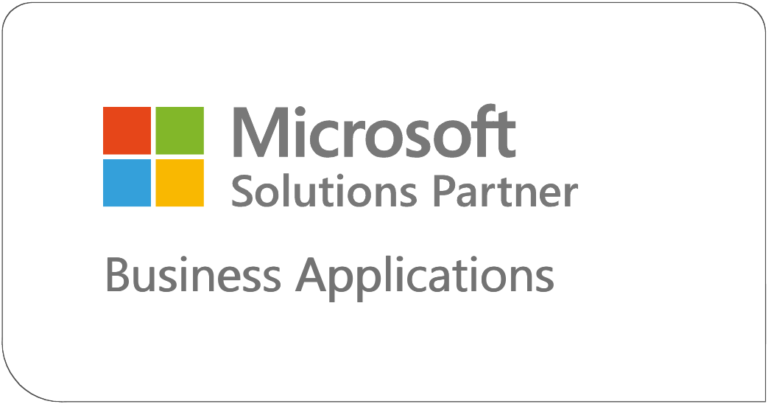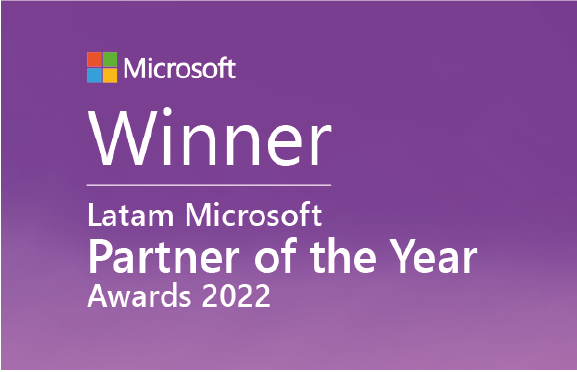This release includes the expansion of Microsoft Copilot across Dynamics 365 and Microsoft Power Platform, as well as role-specific extensions to Copilot for Microsoft 365, designed to transform business processes with natural language processing, AI-generated insights, and time-consuming task assistance.
What’s new in Copilot: Role-based customization
Microsoft’s latest wave of releases highlights significant innovations in Microsoft Copilot, designed to customize the user experience for specific roles within organizations.This customization aims to improve efficiency and productivity across different departments by providing tools tailored to the unique needs and challenges of each role.Copilot for various business functions:- Microsoft Copilot for Sales: Specifically designed for sales teams, this Copilot uses AI to optimize the sales process, from tracking customer interactions to automating data entry and generating valuable insights that can close sales faster.
- Microsoft Copilot for Service: Aimed at customer service and support professionals, this extension of Copilot transforms the way agents interact with customers. It provides automatically generated responses and real-time assistance to resolve inquiries efficiently, improving customer satisfaction and reducing wait times.
- Microsoft Copilot for Finance: Recently announced, this Copilot is integrated to enhance financial functions, facilitating tasks such as account reconciliation, financial reporting and cash flow optimization. Copilot for Finance becomes a virtual assistant that helps professionals manage and forecast the company’s financial health more accurately.
Microsoft Copilot Studio: customization and self-creation
The foundation of these Copilot extensions is Microsoft Copilot Studio, a tool that allows companies to customize and develop their own internal and external copilots. Copilot Studio offers the flexibility to use company-specific data and workflows to create solutions that are tailored exactly to the needs of the organization. This means that companies are not just limited to default configurations; they can innovate and experiment with Copilot to create unique solutions that deliver real, measurable value.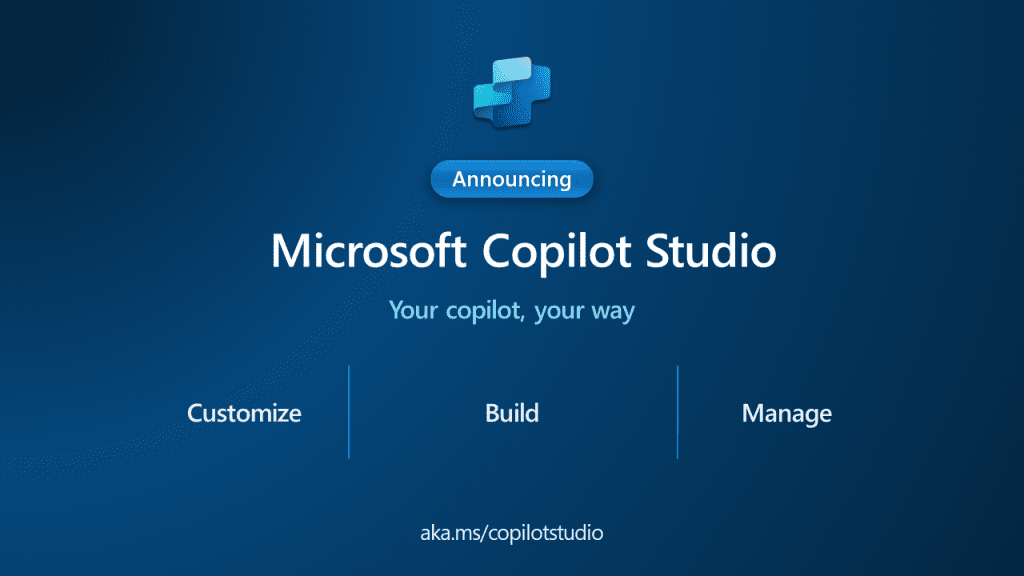
Innovation in customer service and field service with generative AI
Microsoft Update Wave 1 introduces significant transformations in customer service and field service capabilities through the integration of generative artificial intelligence, specifically through Microsoft Copilot.
This integration has the potential to revolutionize the way customer service agents and front-line workers operate by improving efficiency, reducing training costs and, most importantly, enriching the quality of customer interactions.
Creating knowledge articles with Copilot
One of the most notable new capabilities is the help Copilot offers in the creation of knowledge articles. These articles are essential for customer support, as they provide standardized and accessible answers to common questions and technical issues. Traditionally, the creation of these resources demanded a considerable investment of time and technical expertise, which could delay updates and the availability of crucial information.
With Copilot, this process is transformed:
- Draft Automation– Copilot can generate draft articles automatically, using machine learning to understand common FAQs and issues reported by customers. This not only speeds up the creation process, but also ensures that content is accurate and up-to-date with the latest issues and solutions.
- Consistency and Quality: By standardizing content creation, Copilot helps maintain a consistent voice and format across all knowledge articles, which is essential for user experience and brand image.
- Reduced Workload: By freeing agents from the time consumed in drafting and reviewing these documents, Copilot allows them to focus more on direct interaction with customers and resolving more complex cases.
Copilot’s proactive responses to customer conversations.
Another key innovation is Copilot ‘s ability to provide proactive responses during customer interactions. This functionality is based on advanced language models that analyze the context of conversations in real time to provide appropriate and personalized responses:
- Instant responses– Copilot can suggest answers to agents based on customer questions, reducing wait time and improving overall service efficiency.
- Enhanced personalization: By integrating data from customer interaction history, Copilot can customize responses to better suit each customer’s specific needs, improving customer satisfaction and loyalty.
- Continuous learning: As Copilot is exposed to more interactions, its ability to provide relevant and effective responses improves, continually refining the quality of service provided.
Impact on training and operational efficiency.
Copilot integration not only improves the quality of customer service in real time, but also has a profound impact on staff training:
- Accelerated Training: New agents can be trained more quickly, as Copilot provides them with contextual guides during their interactions, significantly reducing the time and cost associated with traditional training programs.
- Ongoing Support: Copilot acts as an always-available assistant to agents, providing useful information and suggestions that help to continually improve their performance and confidence.
The future transformation of ERP: autonomous innovation with artificial intelligence
The world of Enterprise Resource Planning (ERP) is on the threshold of a radical transformation, driven by the integration of advanced artificial intelligence (AI) technologies. This new era of ERP promises to revolutionize business operations by making them more independent and adaptive to changing market conditions and internal demands.
Standalone ERP
Definition and Capabilities
An ERP system has traditionally been the core for integrating data and business processes, managing everything from accounting and finance to supply chain and operations. However, most of these operations have required considerable human oversight and intervention to adapt to new situations or solve emerging problems.
The vision of autonomous ERP shifts this paradigm by incorporating AI to enable the system to make real-time adjustments, operate more independently, and make intelligent decisions without constant intervention. This translates into a number of transformative capabilities:
- Dynamic Adaptation– Standalone ERPs can automatically adjust processes in response to internal and external events. For example, they can reconfigure the supply chain in response to unexpected disruptions or market fluctuations.
- Decision automation: Ability to make decisions based on accumulated data, predictive analytics and pattern recognition, minimizing human error and speeding up operations.
- Proactive interaction: The system can request human intervention only when necessary, allowing employees to focus on more strategic tasks.
Omnicom Group and Standalone ERP
A prime example of the application of this new ERP model is Omnicom Group, a global leader in marketing communications. Omnicom is adopting Dynamics 365 to develop a standalone ERP that not only accelerates its growth and efficiency, but also enhances its ability to innovate. Some key benefits include:
- Optimized decision making: With the help of Dynamics 365, Omnicom can use AI to improve strategic decision making, optimizing everything from resource allocation to market expansion initiatives.
- Operational transformation: Standalone ERP enables Omnicom to redefine its operational processes, making them more agile and less reliant on manual oversight, resulting in greater efficiency and reduced costs.
- Improved responsiveness: The ability to adapt quickly to changing market conditions and customer demands is crucial in a fast-paced business environment. With an ERP that adjusts its operations independently, Omnicom can respond more effectively to these challenges.
Implications for the future of business
The adoption of standalone ERP has the potential to redefine how companies operate and compete. The implications are vast.
- Increased efficiency: By reducing the burden of routine operational tasks and systems management, companies can direct more resources toward innovation and strategic growth.
- Business agility: With systems that automatically adjust, companies can be more agile and resilient, adapting quickly to change without operational delays.
- Competitive advantage: Early adopters of standalone ERP can leverage its benefits to gain a significant competitive advantage in efficiency and responsiveness.
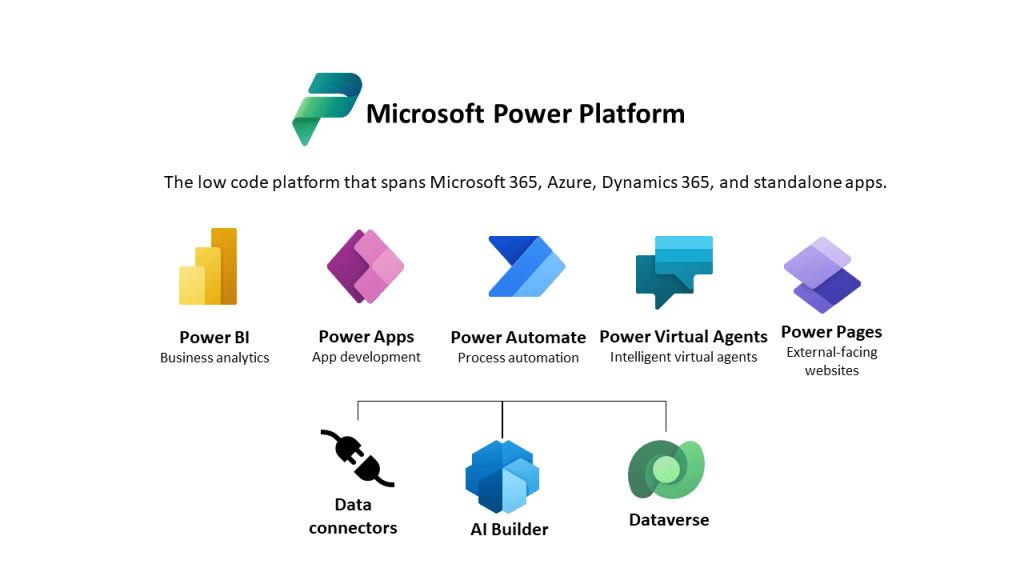
Accelerated development with Microsoft Power Platform: innovation and automation within everyone’s reach
In a business environment where agility and efficiency are more crucial than ever, Microsoft Power Platform emerges as a revolutionary solution for rapid modernization of business processes and systems. This platform stands out for providing low-code tools that democratize application development, allowing non-technical users to build complex solutions and perform extensive automation with ease. The integration of artificial intelligence through Copilot’s new capabilities is further transforming the way these solutions are developed, making them more intuitive and accessible to all users within an organization.
Low-code AI-powered tools
Microsoft Power Platform
It is designed to simplify technology development by removing traditional barriers that require advanced programming skills. Low-code tools allow business users to create applications and workflows on their own, using graphical user interfaces and drag-and-drop logic. This significantly speeds up the development process and reduces dependency on IT resources, enabling companies to respond more quickly to their changing needs.
Copilot Integration: Transforming Application Creation and Automations
The inclusion of Microsoft Copilot in Power Platform is a significant advancement that enriches the platform’s already powerful capabilities. Copilot integrates advanced natural language and generative models to facilitate the creation of applications and automations through conversational interactions. This means that users can simply describe in natural language what they need, and Copilot helps turn these instructions into functional solutions.
Key features of Copilot in Power Platform
- Intuitive application creation: Users can interact with Copilot to design and modify applications using simple descriptions. For example, a user might say “I need an application to track office equipment inventory,” and Copilot can guide the user through the process of creating this application.
- Workflow automation: Copilot not only facilitates the creation of automated workflows, but also suggests improvements based on observed efficiency and usage patterns. This includes the ability to automate repetitive tasks and optimize existing processes with intelligent suggestions.
- Process mining development: Using natural language, users can instruct Copilot to configure and refine process mining, which is essential for identifying bottlenecks and improving operational efficiency.
Transformative impact on organizations
The combination of low-code tools and advanced AI capabilities in Microsoft Power Platform enables organizations to:
- Democratize technology development: Every employee, regardless of technical skill, can contribute to the development and improvement of business processes.
- Accelerate innovation: Reducing technical barriers and speeding development drives innovation by enabling more ideas to quickly become operational solutions.
- Improve operational efficiency: By automating tasks and streamlining processes, companies can devote more resources to higher-value activities, improving both productivity and employee satisfaction.
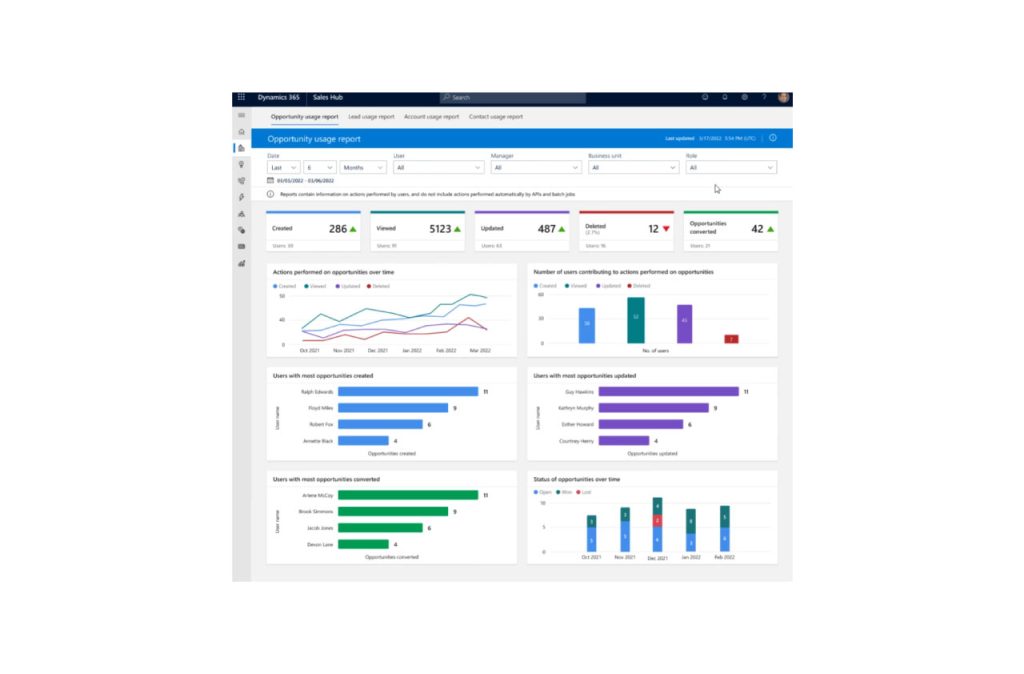
Personalized Customer Experiences: Raising the Standard in B2B Interactions
Microsoft is redefining the B2B customer experience with the integration of Copilot into Microsoft Dynamics 365 Sales. This innovation enables companies to not only meet but exceed customer expectations for personalization, delivering meaningful and relevant interactions that reinforce loyalty and drive growth.
Copilot in Microsoft Dynamics 365 Sales: personalization at its best
With Copilot integrated into Dynamics 365 Sales, companies can harness the power of artificial intelligence (AI) to proactively personalize marketing content, improve lead quality and enrich every customer interaction. This tool uses advanced natural language processing capabilities to understand and predict customer needs, enabling companies to deliver solutions and communications more tailored to each customer’s individual requirements.
Key features of Copilot in Dynamics 365 Sales:
- Content Personalization– Copilot helps generate personalized marketing content that resonates with each customer, based on their interaction history and preferences. This ensures that content is not only relevant, but also timely and effective.
- Improved lead quality: By analyzing data from past interactions and customer preferences, Copilot can identify and prioritize leads that are more likely to convert, significantly improving the efficiency of sales teams.
- Enriched interactions: Copilot enables salespeople to provide more informed and detailed responses, improving every customer touch point. From quick responses to personalized recommendations, Copilot ensures that every interaction adds value to the customer-company relationship.
Use case: Sonepar and the omnichannel experience.
A prime example of how companies are leveraging these capabilities is Sonepar, a global B2B distributor of electrical products. With the help of Copilot, Sonepar has been able to transform its sales approach, becoming the first global B2B electrical distributor to offer a fully digitized and synchronized omnichannel experience to all of its customers.
- Personalized marketing: Using Copilot, Sonepar has been able to personalize its marketing content, ensuring that each communication is relevant and engaging for different customer segments.
- Lead management: AI integration has enabled Sonepar to improve the quality of its leads, facilitating a more efficient and effective sales process.
- Improved customer support: With AI-generated recommendations and proactive responses, Sonepar is able to offer superior customer support, strengthening customer satisfaction and loyalty.
Impact on the B2B Sector.
This release not only underscores Microsoft’ s commitment to continuous innovation, but also sets a new standard for how enterprise tools can enrich decision making, streamline operations and personalize customer interaction. Advanced AI capabilities and natural language processing are ushering in a new era in B2B interaction, where personalization and efficiency are not just aspirations but tangible realities that transform the way businesses engage with their customers.
By embracing these technologies, companies can not only stay competitive in today’s dynamic marketplace, but also lead the way in creating industry-defining customer experiences, setting the standard for the future of B2B interactions.





